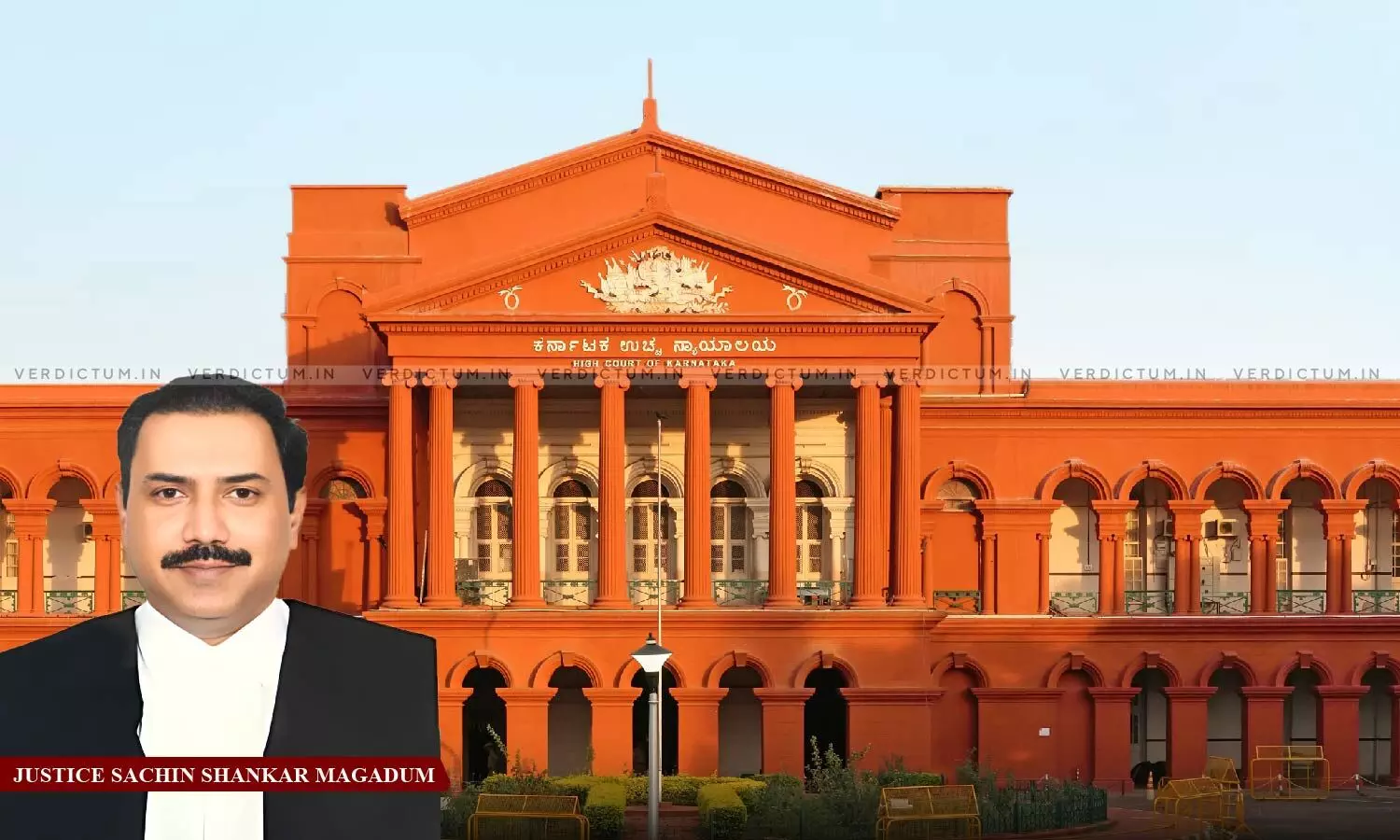
Karnataka Education Department Rightly Mandated 6 Yr Age Limit For Class-I Admission In Schools: High Court Rejects 4-Yr-Old Girl’s Plea
 |
|The Karnataka High Court while rejecting a petition of a four-year-old girl has held that the Karnataka Education Department has rightly mandated that the minimum age limit for admission to Class-I in schools should be 6 years.
The Court was deciding a case wherein the petitioner sought a writ of certiorari to quash the notification/order and issue a direction to the respondent school to allow her to study in LKG for the academic year 2023-24.
A Single Bench of Justice Sachin Shankar Magadum observed, “The respondent-State has come up with a age norm in accordance with NEP (NEP, 2020 guidelines). The Karnataka Education Department has rightly mandated that minimum age limit for admission to class-I in schools in Karnataka should be 6 years as on June 1st, while currently the age limit is 5 years 5 months. The petitioner's contention that the guidelines have to be implemented prospectively cannot be acceded to.”
The Bench said that the NEP (National Education Policy, 2020) guidelines in fixing the age criteria is based on overall global education standards.
Advocate K.N. Srinivasa appeared for the petitioner while AAG Vikram Huilgol and AGA Kavitha H.C. appeared for the respondents.
Factual Background -
The petitioner was born in 2019 and joined respondent school for Nursery (Pre-KG) on in 2021. The petitioner claimed that she was eligible to take admission to LKG and the respondent school collected fees in 2023. The school having admitted the petitioner to LKG sent a mail indicating that she was not eligible to take admission to LKG as she did not complete the age of 4 years and therefore, intimated that petitioner must be retained in Nursery. The said mail was issued by the school based on a publication for having issued an order fixing the age criteria to take admission for class-I in the Government schools, aided and unaided schools.
The Karnataka State by the aforesaid order had fixed the admission age for class-I as 6 years. The State also indicated that enforcement of admission age shall come into force for the academic year 2025-26. It was in this background, the respondent school intimated that the petitioner be retained in Nursery as she would not complete 6 years for the academic year 2025-26. Assailing such an order, the petitioner through her natural guardian knocked the doors of the writ Court.
The High Court after hearing the contentions of the counsel said, “The respondent No.4-school is being run by the Central Government through its Ministry of Education, Government of India. Unlike private schools affiliated to CBSE and State Boards, the age of entry to class-I has remained 5 plus years for the academic year 2022-23. Therefore, respondent No.4 is bound to follow the guidelines issued by NEP, 2020 and imparting school education has envisaged creation of infrastructure (pre-school of age 3 to 6).”
The Court held that the respondent school has adopted NEP, 2020 and therefore, the eligibility criteria of minimum and maximum age for registration for admission to Class-I is rightly modified which was in terms of mandate of NEP and that the admission guidelines issued by the school and State are legal, valid, and in conformity with NEP, 2020.
“The new 5+3+3+4 education system aims at developing individuals with emphasis on cognitive capacities such as critical thinking and problem solving and building social, emotional and ethical abilities. … The classification of stages in NEP education system has been done based on the intellectual growth of a student. In the earlier model, the age group of 3 to 6 was not covered. Therefore, experts have come up with a new guidelines with a hope that a strong foundation of early childhood care and education would be given to the students and this is obviously aimed at promoting play-based, activity-based, inquiry-based and flexible way of learning”, noted the Court.
The Court further added that it cannot alter the educational guidelines set up by the competent authority under the garb of judicial review and that it has to bear in mind the role of statutory expert bodies in education.
“If the question of educational policy or an issue involving academic matter is raised before writ Courts, the Courts keep their hands off. The Hon'ble Apex Court in catena of judgments has held that, Judges must not rush in where even educationist fear to tread. … Unless, any illegality is committed in the education policy or same is contrary to law, decision bringing about change cannot per se be interfered with by the Court”, concluded the Court.
Accordingly, the Court dismissed the writ petition.
Cause Title- Tishika Aniket v. The State of Karnataka & Ors.